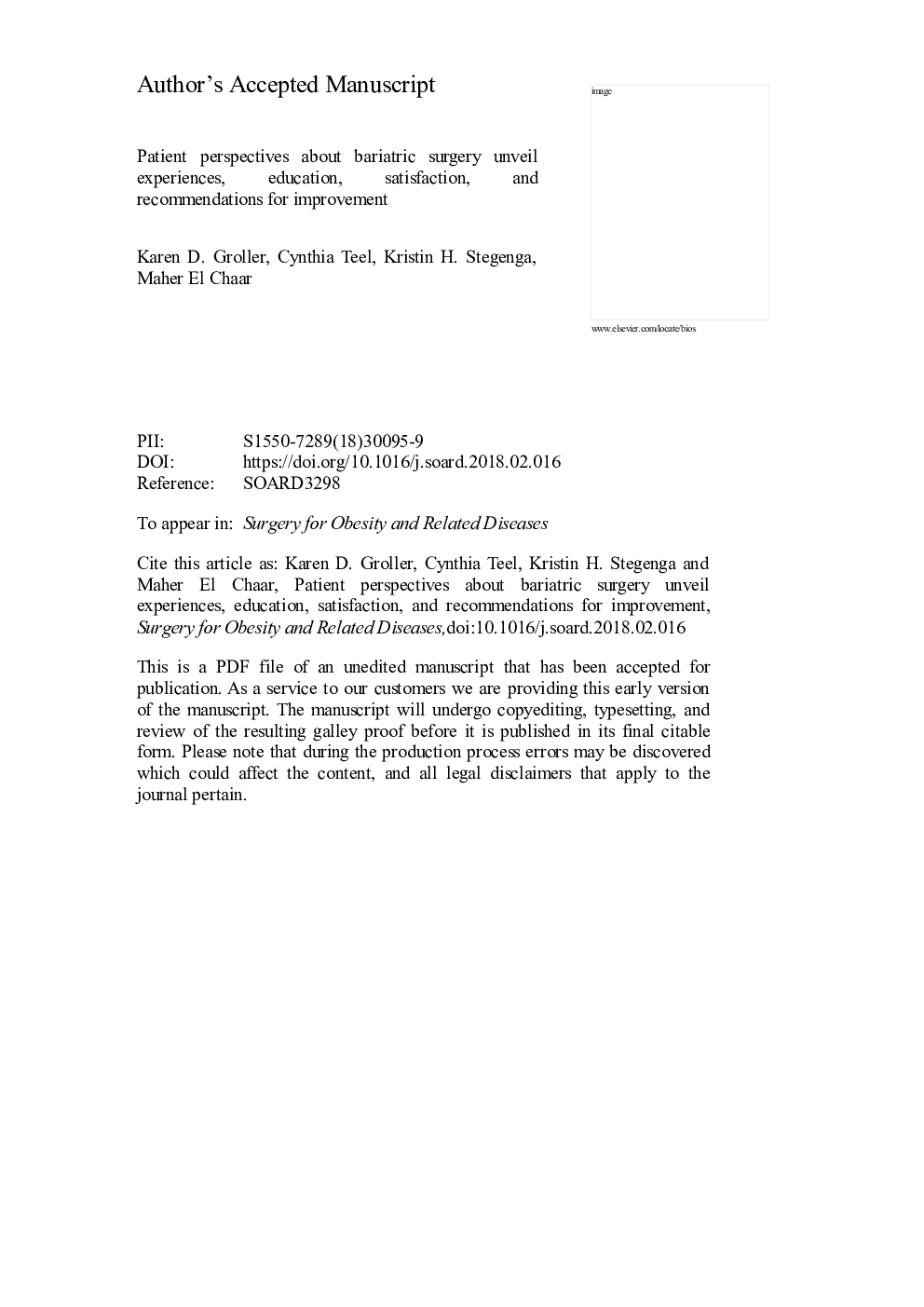| Article ID | Journal | Published Year | Pages | File Type |
|---|---|---|---|---|
| 8731352 | Surgery for Obesity and Related Diseases | 2018 | 41 Pages |
Abstract
Patient narratives provided evidence about the WLS experience. Achievement of weight goals, adherence to rules, and improved health status contributed to perceptions of WLS success. Participants encouraged educators to identify expected outcomes of educational programming, monitor holistic transformations, foster peer support, and use technology in WMC programming. Results also validated the need for the Metabolic and Bariatric Surgery Accreditation and Quality Improvement Program's education requirement (standard 5.1). Future educational research could help develop best practices in WLS patient education and assess associations between education and clinical outcomes.
Keywords
Related Topics
Health Sciences
Medicine and Dentistry
Gastroenterology
Authors
Karen D. Ph.D., R.N.-B.C., C.M.S.R.N., Cynthia Ph.D., R.N., F.A.A.N., Kristin H. Ph.D., R.N., C.P.O.N., Maher M.D., F.A.C.S., F.A.S.M.B.S.,
